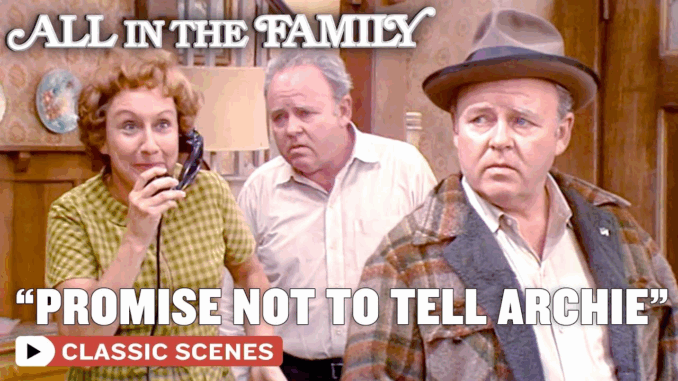
In the pantheon of American television, few shows have dared to hold a mirror to society with such clarity — and courage — as All in the Family. While labeled a sitcom, the show was far more than a vehicle for laughs; it was a weekly dose of social critique disguised as entertainment.
From its very first episode in 1971, All in the Family challenged the assumption that TV should make people comfortable. Instead, it forced viewers to sit face-to-face with the uncomfortable truths of American life — racism, sexism, class inequality, homophobia, and generational division. In doing so, it sparked a cultural reckoning that few shows before or since have matched.
The genius of the show lies in its protagonist, Archie Bunker — a man whose outdated views and prejudices were not glamorized, but dissected. Archie was, in essence, a product of his environment: working-class, poorly educated, and raised in a world where privilege often meant ignorance. Yet through him, audiences were made to confront their own unspoken biases. He wasn’t evil — he was familiar. And that was the point.
Norman Lear, the show’s creator, used Archie not to promote bigotry but to expose it — and more importantly, to mock it. The laugh track often followed Archie’s most outrageous lines, but the laughter was never meant to endorse. It was meant to sting.
But All in the Family didn’t only challenge conservative ideologies. It also scrutinized liberal complacency. Mike “Meathead” Stivic, Archie’s left-wing son-in-law, was idealistic but often self-righteous, highlighting how moral superiority could sometimes be just as alienating as ignorance. The result was a nuanced critique of American society from both ends of the spectrum — and a reminder that change requires more than shouting from either side.
Perhaps most daring of all was the show’s willingness to let characters fail — morally, emotionally, and socially. All in the Family wasn’t about neat resolutions or moral clarity. It was about the messiness of human belief, the stubbornness of tradition, and the slow, painful process of social progress.
In many ways, the show anticipated the polarization of modern America. It predicted the culture wars, the rural-urban divide, and the generational friction that now dominate headlines. More than 50 years later, its themes are not outdated — they’re prophetic.
In today’s media landscape, saturated with noise and outrage, All in the Family stands as a masterclass in how satire and storytelling can serve as instruments of social awareness. It didn’t preach. It provoked. And in doing so, it made millions of viewers reconsider not just what they thought — but why.